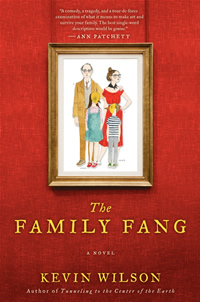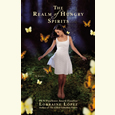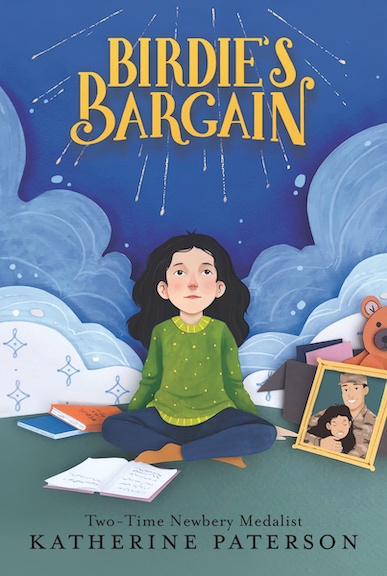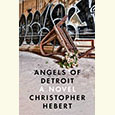Anything for Art
Kevin Wilson’s debut novel tells the tale of a wildly funny dysfunctional family
The premise of Kevin Wilson’s debut novel, The Family Fang, combines highbrow humor and slapstick in a way that brings to mind Woody Allen in his comic heyday: a pair of performance artists named Caleb and Camille Fang beget a daughter and a son, dub them Child A and Child B, and use the kids to help stage provocative stunts intended to create “the chaos that they believed the world deserved.” Tormenting a shopping mall Santa, grossing out diners in a fancy restaurant, wreaking havoc at a beauty pageant—for Caleb and Camille, this “choreographed spontaneity” is art, and there is nothing more important than art. If their offspring are distressed by the public humiliation and occasional mob violence involved, no worries: it’s all part of teaching them to be reckless, ruthless artists, just like Mom and Dad. “This is what the Fangs do,” says Caleb, and at the conclusion of a performance the quartet join hands and sing a perverse little family ditty. “Kill all parents,” it goes, “so you can keep living.”
As the novel opens, A and B—now known as Annie and Buster—are floundering young adults. Annie is an actress burdened by bad publicity and love trouble, while Buster is a once-promising novelist reduced to writing features for men’s magazines about bacon festivals and stunt sex. The junior Fangs have distanced themselves from their parents but they retain a slightly odd tilt to reality. They both have a habit of quieting their fears in critical situations by literally playing dead—“an old Fang family technique employed before doing something disastrous. You pretended to be dead and when you came out of it, nothing, no matter how dire, seemed important.”
 Needless to say, this little quirk leads to some poor decision-making. Buster’s heedlessness puts him in the path of a poorly-aimed potato (yes, a potato) that seriously damages his face. With no money and no health insurance, he’s forced to seek refuge at his parents’ home in rural Tennessee, somewhere outside Nashville. Annie, on the run from a slightly crazed screenwriter boyfriend, arrives there, too. The family reunion is a brief one, as Caleb and Camille soon dramatically disappear in what may or may not be their ultimate performance piece, sending the children on a quest to find them. This real-time narrative is intercut with flashbacks detailing the family’s history, including the early romance of Caleb and Camille.
Needless to say, this little quirk leads to some poor decision-making. Buster’s heedlessness puts him in the path of a poorly-aimed potato (yes, a potato) that seriously damages his face. With no money and no health insurance, he’s forced to seek refuge at his parents’ home in rural Tennessee, somewhere outside Nashville. Annie, on the run from a slightly crazed screenwriter boyfriend, arrives there, too. The family reunion is a brief one, as Caleb and Camille soon dramatically disappear in what may or may not be their ultimate performance piece, sending the children on a quest to find them. This real-time narrative is intercut with flashbacks detailing the family’s history, including the early romance of Caleb and Camille.
The antic premise of The Family Fang could easily have been spun into a tiresome, overextended joke of a novel. One thing that saves the book from such a fate is Wilson’s spare, deadpan style. He never telegraphs a comic moment and he never softens the sharp edges of his humor with sentiment, yet he’s not afraid to give the prose a touch of elegance. He describes the Fangs’ artistic mission as a desire “to blow something up and watch all the tiny pieces resettle around them like falling snow.” When Annie returns home she sees her aging parents as “miniature, crooked versions of themselves.” Wilson, who is on the English faculty at the University of the South and formerly served as administrator of the Sewanee Writers’ Conference, indulges in an occasional literary wink as well, including—inevitably—a sly reference to Philip Larkin’s “This Be The Verse.”
 Beyond its smart comedy and deft style, the chief pleasure of this novel lies in its portrait of the Fangs as a family, in all their flamboyant dysfunction. Wilson makes them real people with recognizable emotional lives, in spite of their unlikely obsessions and predicaments. Their relationships with each other are driven by the same volatile mix of love, dependence, and resentment that exists in all families. In many ways, Annie and Buster are perfectly ordinary members of the Millennial Generation. They have trouble finding work, they sleep with the wrong people, they eat badly and indulge a little too much in alcohol and prescription drugs. Likewise, the senior Fangs’ fanatical devotion to art is not so different from the religious extremism that abounds in American culture. Annie and Buster are not alone in having parents who put ideology ahead of the welfare of their children. Ironically, the cartoonish context makes the human drama in The Family Fang more effective by placing it beyond our prejudices or cultural clichés.
Beyond its smart comedy and deft style, the chief pleasure of this novel lies in its portrait of the Fangs as a family, in all their flamboyant dysfunction. Wilson makes them real people with recognizable emotional lives, in spite of their unlikely obsessions and predicaments. Their relationships with each other are driven by the same volatile mix of love, dependence, and resentment that exists in all families. In many ways, Annie and Buster are perfectly ordinary members of the Millennial Generation. They have trouble finding work, they sleep with the wrong people, they eat badly and indulge a little too much in alcohol and prescription drugs. Likewise, the senior Fangs’ fanatical devotion to art is not so different from the religious extremism that abounds in American culture. Annie and Buster are not alone in having parents who put ideology ahead of the welfare of their children. Ironically, the cartoonish context makes the human drama in The Family Fang more effective by placing it beyond our prejudices or cultural clichés.
Still, for all its rich psychological insight, The Family Fang is first and foremost a comic novel—whimsical, outrageous, and wildly funny. Wilson set himself a tough task, combining a complicated storyline with an outlandish premise that demands a pitch-perfect tone to hold onto the reader. He pulls it off beautifully, delivering a highly original novel that is satisfying on every level.
Kevin Wilson will appear at the 2011 Southern Festival of Books, held October 14-16 in Nashville. To read Chapter 16‘s interview with Kevin Wilson, click here.


